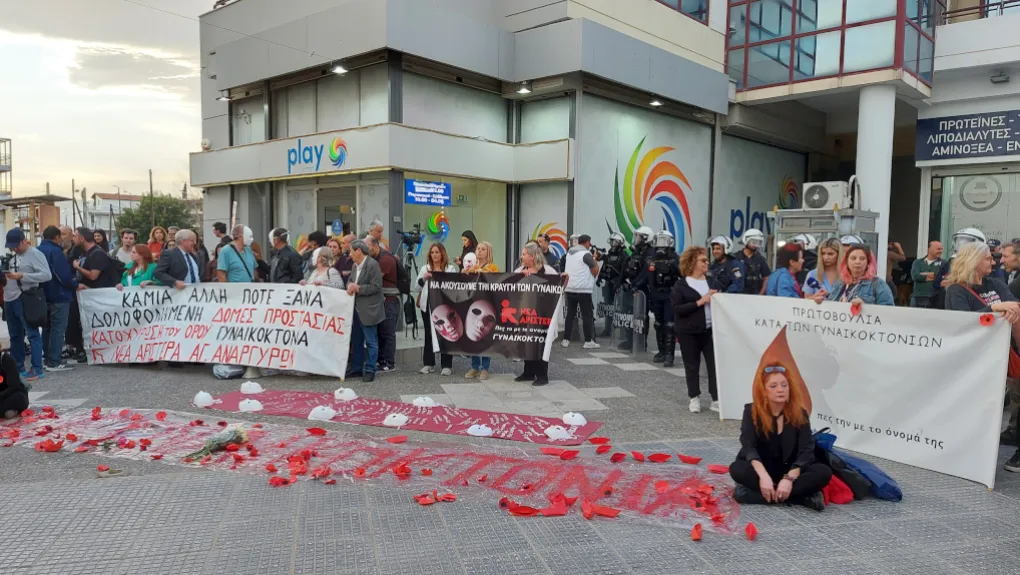By Dimitris Kouvaras,
What is the purpose of the state? Arguably, this is an immensely broad question receptive to multiple answers, depending on the spatiotemporal context evoked and the perspective from which it is asked. However, if one goes back to the basics of modern intellectual history or political philosophy, the first answer that pops up is unmistakably one: security. Since its inception, social contract theory implied that the freedom shed by individual members of society to the state, and the power it henceforth acquires, are to be used to that end. Hobbes and More are quite unambiguous. Their theories might have been outdated by and large, yet this major pronouncement still holds, as security –when it serves as a guarantee of freedom rather than a pretext for Orwellian despotism– can be reasonably seen as the foundation of many a societal virtue. Keep that answer in mind, as I ask you a second question.
Have you ever watched a thriller or a police film where a villain goes rogue against all odds? I bet most of you have at least once. You might have found, then, that the extent to which the character unleashed his destructive energy, defying all authority and possible protections their victims could claim, was exaggerated. You might have even caught yourself thinking that such far-fetched scenarios only happen in films. After all, real life has no audience craving for adrenaline and suspense. Until a few days ago, I would agree. Now, though, I cannot. For the femicide that recently shocked Greece (but was preceded by many others), far exceeds directorial imagination in gruesomeness and defying odds. If you have ever thought how close to the police a woman’s murder can take place unobstructed, this story will belie your assumptions… for the worse.

The victim was Kyriake Griva, a young woman in her late twenties who had recently escaped an abusive relationship. On the dreadful evening of the event she had been out for a walk with a friend and upon returning home witnessed her ex waiting for her outside. He had a history of mental issues and aggressive behaviour, so she and her friend headed to the nearby police station of Agioi Anargyroi (a suburb of Athens) as a precaution against such a potentially dangerous confrontation. She explained to the officers her ex’s history and the reasons why she was concerned about her safety and requested that a police car accompany her back home since she was justifiably afraid to do so alone. The officers did not urge her to stay in the safety of the station, nor noted her data.
They, instead, told her to call 100 (the Greek 911) to find a vehicle, washing their hands of the situation more than Pilatus would have imagined possible. To mitigate the eye-striking negligence, some said that communication of the request through the station would be considered of lesser priority. However, such a reasonable explanation is incompatible with the utter unreasonableness the victim faced, depriving her of her life. Having received no tangible help, she walked out with her friend after just eight minutes, immediately calling 100 and reiterating her request for a police escort. The answer she got this time was not just unreasonable but emetic: “A police car is not a taxi”. While still literally a couple of meters from the station’s entrance, her ex who had followed her all the way there, approached her. The guard at the gatehouse two meters afar did nothing to prevent him. While still on the emergency line, she cried: “I’m lost; he’s here”. Seconds later, she was lost forever.

“How close to the police can a woman’s murder happen unobstructed?”, echoes the question. The answer tragically echoes back: just two meters apart, no more. That’s why I no longer believe thrillers to be exaggerated. That’s why I do not dare raise again the question I posed in the beginning about the purpose of the state, for the answer would strike me as a farce. Indeed, it is a farce, but one that causes me no laugh but anger. How could it not when a woman lost her life in the very presence, both telephonic and physical, of the people who were supposed to protect her? The state, in the form of the police, was once again too far to help a woman, that distance being two meters. There were so many but there was none…
References
- New Femicide Shocks Greece: Woman Murdered by Her Ex. Greek Reporter. Available here
- Latest Case of Femicide Occurs Outside NW Athens Police Station. To Vima. Available here




